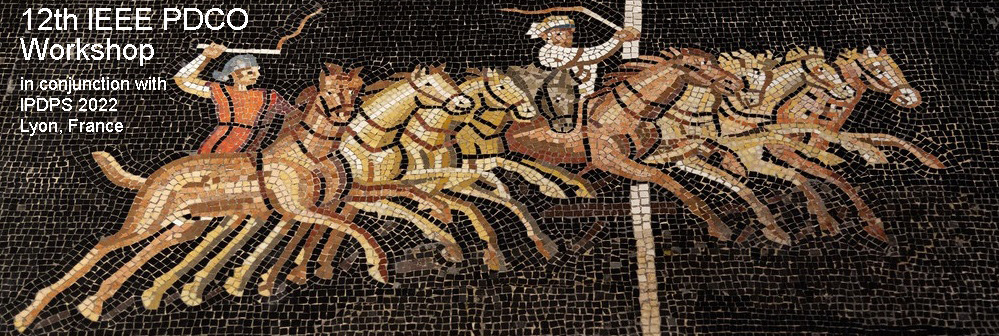
|
|
|
Special issuesTwo special issues of Journals A special issue of the journal Algorithms on the topic: Parallel / Distributed Combinatorics and Optimization will be dedicated to the IEEE Workshop PDCO 2022. Algorithms (ISSN 1999-4893; CODEN: ALGOCH) is a peer-reviewed open-access journal indexed by Emerging Sources Citation Index (ESCI), EI, Scopus, and MathSciNet. Special Issue on: “Parallel / Distributed Combinatorics and Optimization” Submit a paper to special issue (submission open) Description Topics of interests include (but are not limited to):
The organization of this special issue is linked to the 12th IEEE Workshop Parallel / Distributed Combinatorics and Optimization (PDCO 2022), that will be take place together with the 36th IEEE International Parallel and Distributed Symposium (IPDPS 2022) in Lyon, France, May-June 2022. The most outstanding papers from the workshop will be considered for possible publication in the special issue, after a peer review process. The special issue is open to any submissions, and not restricted to papers from the PDCO workshop. Important Dates - Full Paper Regular Submission Due: October 15th, 2022
A special issue of the journal: Mathematical Biosciences and Engineering on the topic: Manuscript Topics Data-centric software systems support the communication, processing and analysis of large, heterogeneous data volumes and flows in many modern application scenarios. For example, cyber-physical systems need to deal with enormous volumes of data that are generated continuously in the scope of the Internet of Things, still they need to work efficiently, and they must be scalable, reliable and trustworthy at all times. The ability to handle lakes and streams of data in order to turn them into informed decisions can lead to great competitive advantages for companies and administrations alike, as well as improve the quality of life for the citizens of information society. Such abilities can be seen in biological systems based on the intelligence of living beings but the functioning has yet to be fully understood and transferred for technical utilization. In particular, the question is how to support data-centric software systems with artificial intelligence, e.g. by means of learning and recognizing patterns from large amounts of complex or unstructured data. Furthermore, the basic mechanisms of intelligent behavior might be combined with and improved by complementary techniques like federation and transfer of learning as well as contextualization of the data. The inherent complexity of resulting approaches together with the strict qualitative requirements of sensitive application areas are calling for solid formal methods with sound mathematical foundations. Subsequently, this special issue focuses on novel approaches for large scale data management and engineering that are based on a bio-inspired notion of intelligence as well as their formal foundations. The areas of interest include, but are not limited, to: ● Formal models and methods of intelligent data processing ● Bio-inspired intelligent algorithms for data-centric systems ● Technologies for data-driven decision making ● Smart Internet of Things and cyber-physical intelligence ● Intelligent cloud, edge and fog computing ● Data processing for smart devices ● Data-centric communication protocols ● Context-aware data sharing ● Applications of novel intelligent data-centric systems Instructions for authors https://www.aimspress.com/mbe/news/solo-detail/instructionsforauthors Please submit your manuscript to online submission system: http://oeps.aimspress.com/mbe/ch/author/login.aspx Paper Submission All manuscripts will be peer-reviewed before their acceptance for publication. The deadline for manuscript submission is 30 September 2022.
|

